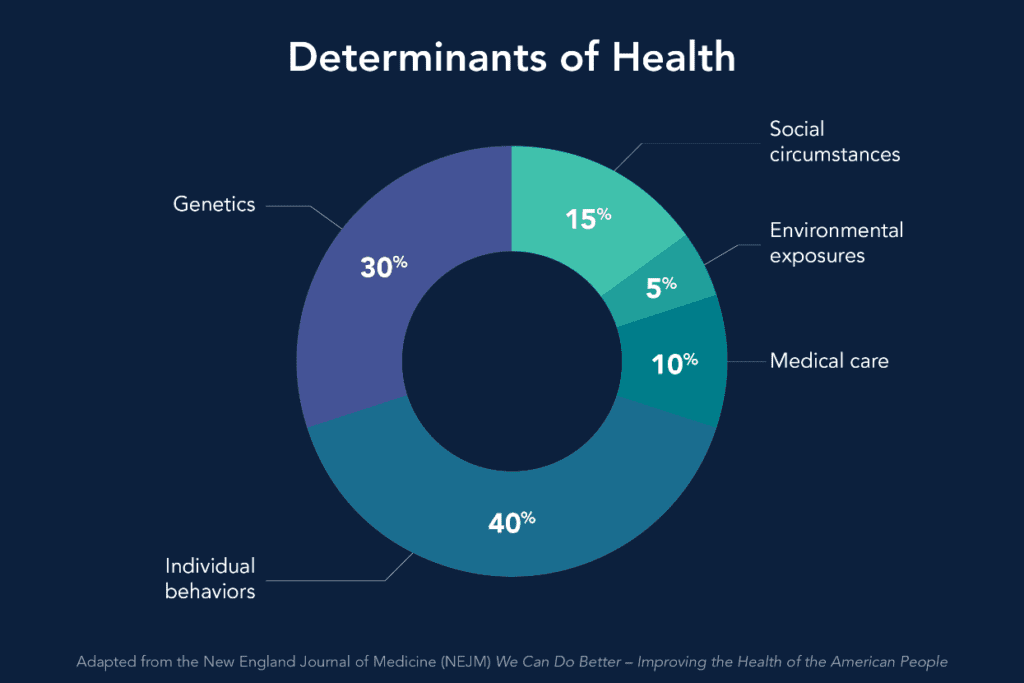Article
Part 1: What determines health and why should we care?
* This content was originally published prior to N. Harris Computer Corporation’s 2022 acquisition of the Allscripts Hospital and Large Physician Practice business segment. Our business is now known as Altera Digital Health.
Editor’s note: In this blog series, we explore factors that contribute to a person’s health (i.e., determinants of health), do a deep dive into the social determinants of health, then look at one organization’s comprehensive approach to improve community health and well-being.
The United States consistently ranks poorly on measures of health status. Why is that? What can we do to improve?
As we continue our quest to achieve healthcare’s Triple Aim, it is essential we take a systematic look at the factors that impact health and the best solutions to achieve our goals.
The determinants of health
As outlined in the New England Journal of Medicine (NEJM) by Dr. Steven Schroeder in We Can Do Better – Improving the Health of the American People, there are 5 determinants that contribute to an individual’s overall health – genetics, social circumstances, individual behaviors, environmental exposures and medical care.

Importantly, the determinants of health do not contribute equally to a person’s overall health and better health is not merely achieved with better medical care. In fact, medical care plays only a small role in what makes a person – and a population – healthy. While medical care is the determinant that receives the greatest share of resources and attention, it contributes to only 10% of the factors that make a person healthy.
The most influential determinant to improve health and reduce premature deaths lies in changing unhealthy individual behaviors (e.g., smoking, alcohol abuse). The chart above illustrates the contribution of each determinant to overall health status. Individual behaviors account for 40% of premature deaths in the U.S. influenced by factors such as obesity, physical inactivity and smoking.
Genetics, or the traits we inherit from our parents, is another determinant with significant impact on a person’s overall health and well-being. While historically less modifiable than other determinants, there is now great potential to use genomics to better understand ourselves and for doctors to utilize this information to tailor preventative and treatment therapies.
The environment refers to the neighborhood or built environment in which we live. Not only does this include environmental conditions such as allergens, air quality and water quality, but also factors like access to healthy foods, places to exercise, adequate public transportation, educational and job opportunity and safety from crime and violence. Although a smaller contributing factor to health overall, the environment plays a critical role in the health (or sickness) of people with highly sensitive chronic conditions like asthma.
The final determinant of health, social circumstances, represents the social conditions in which we live and develop. These factors include support networks, education, job opportunity, income and social status. Poor social circumstances have significant impact on people and negatively impact the health and well-being of both individuals and communities.
In my next blog, I will discuss the social determinants of health in depth and why a holistic approach by doctors, hospitals and communities is necessary to elevate health and quality-of-life.













